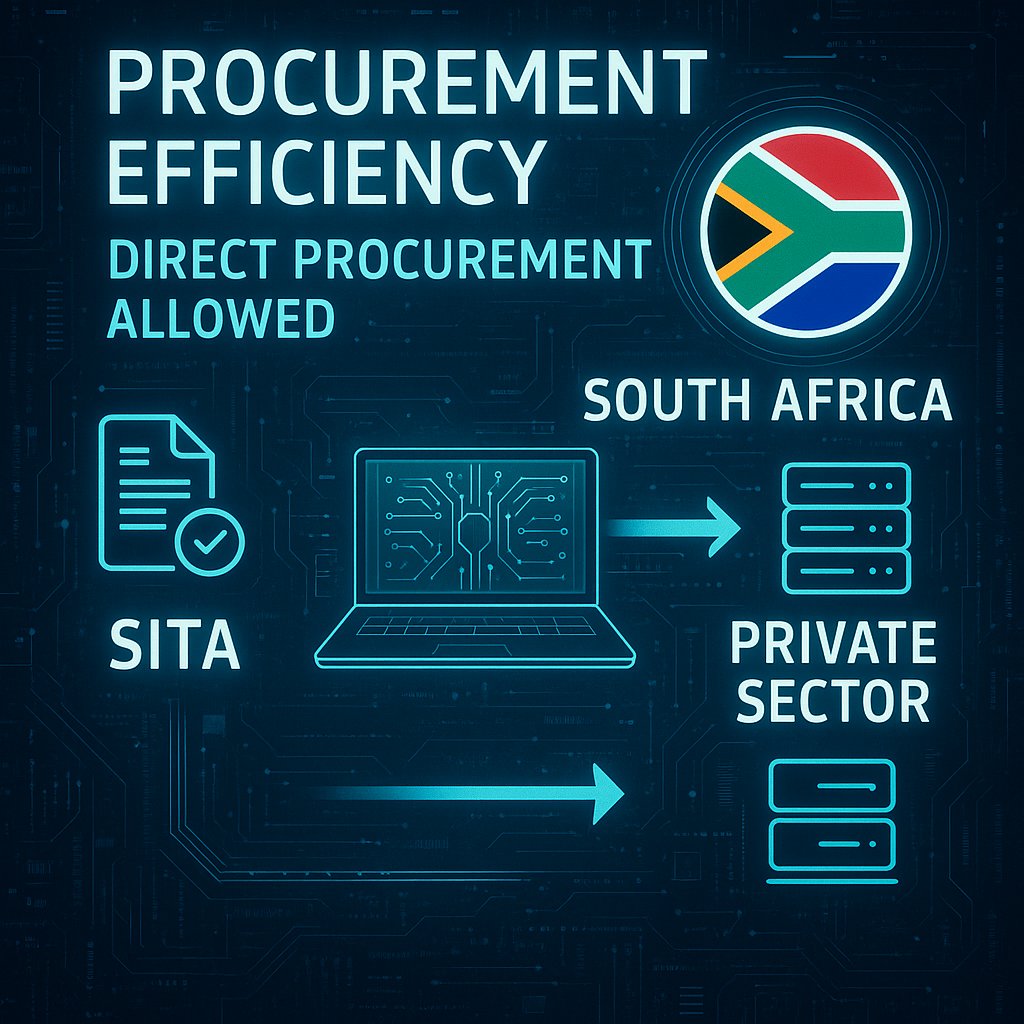Image created by AI
Sweeping Changes to IT Procurement Rules in South Africa to Boost Efficiency and Security
In a significant policy shift, South African government departments will now have more leeway in procuring IT services and products directly from the private sector, bypassing the State Information Technology Agency (SITA). This change, recently gazetted by Communications Minister Solly Malatsi, marks a pivotal move towards enhancing the efficiency and responsiveness of public services in the country.
The amended Sita Act of 1998 now includes an “Efficiency of Procurement” section. This addition introduces a structured framework that allows departments to substantiate their IT needs directly if SITA is unable to meet them efficiently. Departments must outline their business case, user requirement specifications, and timeframe through a formal notice to SITA, which then has ten working days to respond with its capacity and procurement schedule.
This procedural shift is endorsed by several ministries and provincial governments, reflecting a broad governmental acknowledgment that faster and more flexible procurement can significantly enhance public service delivery throughout South Africa. This sentiment is strongly supported by the financial ramifications outlined by the Treasury, suggesting that streamlined procurement could also lead to substantial cost savings.
One of the primary motivators for this shift is the ongoing challenges faced by departments such as Home Affairs, which has struggled with SITA's slow procurement processes and frequent system downtimes, severely affecting critical operations. The department has been particularly vocal about the urgent need for robust, secure, and reliable IT services to manage national security tasks effectively, such as border control and biometrics.
Home Affairs’ 2025/2026 Annual Performance Plan sharply criticizes SITA for its inadequacies, stating that these issues not only compromise security at national ports but also hinder strategic initiatives crucial for modernization and digital transformation.
In response to these challenges, Home Affairs is exploring partnerships with private IT firms capable of delivering higher availability and security, aimed at reducing downtimes and optimizing costs. Minister Leon Schreiber also highlighted the department's ambitious plans to digitize more services, an initiative that will require substantial IT upgrades—an endeavor that may finally be within reach with these new regulatory adjustments.
By allowing direct procurement, the regulation aims to not just resolve the issues of particular departments like Home Affairs, but also decrease demand on SITA, enabling the agency to focus its resources on larger, more impactful customers and projects.
Nevertheless, the success of these new regulations will hinge on transparent and accountable implementation, ensuring that this greater procurement flexibility does not compromise the quality of services or lead to fiscal inefficiencies.










